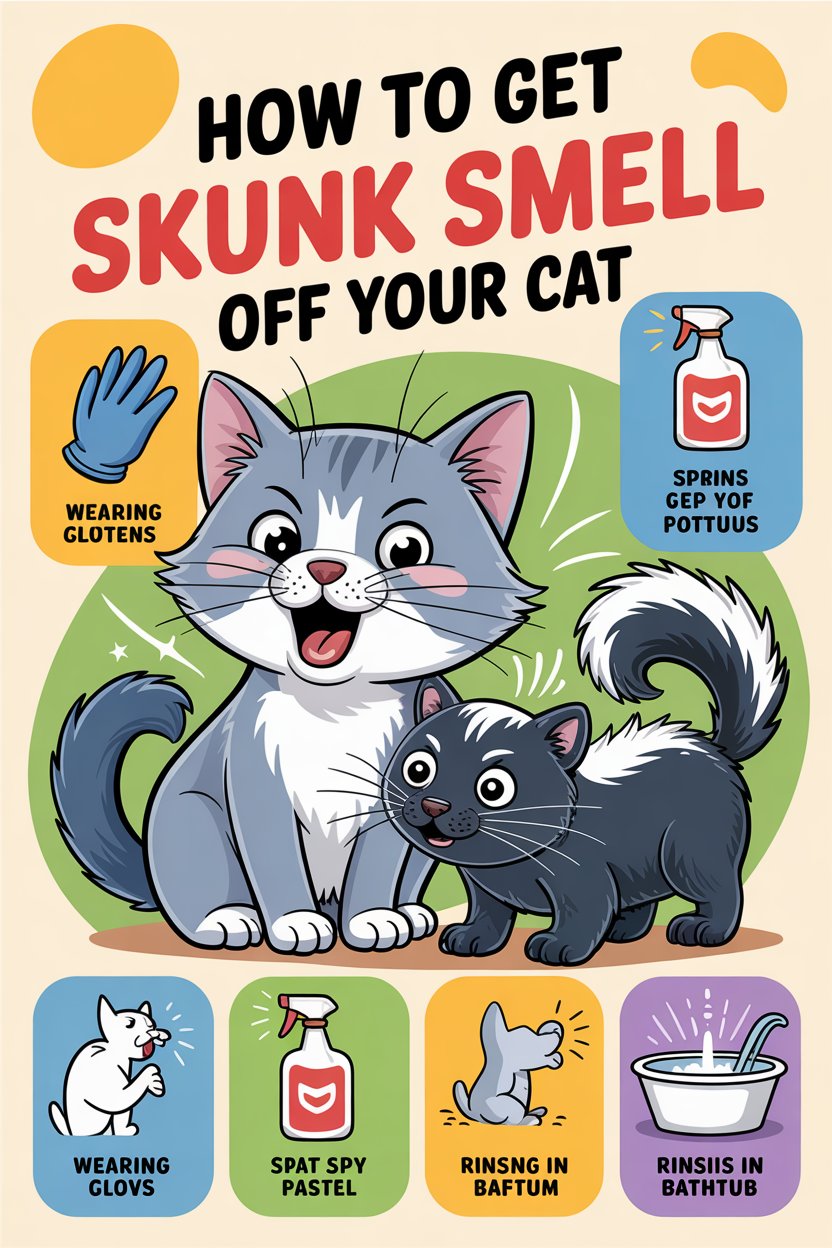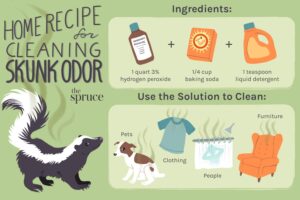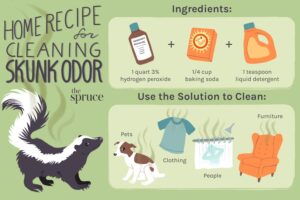How to Get Skunk Smell Off Your Cat
When a cat encounters a skunk, the resulting odor can be overwhelming and difficult to remove. Skunk smell on a cat clings to their fur and skin, requiring careful, pet-safe methods to eliminate it. This guide provides effective steps for how to get skunk smell out of a cat, ensuring your feline friend is clean and comfortable while keeping the process stress-free.
Why Skunk Smell Persists on Cats
Skunk spray contains thiols, sulfur-based compounds that adhere to a cat’s fur and skin, creating a pungent, long-lasting odor. Cats are sensitive to strong chemicals and prone to stress, so removing skunk smell from cats requires gentle, safe solutions and patience. Acting quickly prevents the odor from setting deeper or spreading to your home.
Step-by-Step Methods to Remove Skunk Smell from Cats
1. Contain the Odor
Keep your cat in a confined area, such as a bathroom or laundry room, to prevent the skunk smell from spreading to furniture or carpets. Avoid letting them groom excessively, as this can spread the odor or irritate their skin.
2. Prepare a Pet-Safe De-Skunking Solution
The most effective way to get skunk smell off a cat is a hydrogen peroxide-based solution, but it must be diluted for feline safety:
- Recipe: Mix 1 quart of 3% hydrogen peroxide, 1/4 cup of baking soda, and 1 teaspoon of mild, cat-safe dish soap (like Dawn). Dilute with an equal part of water to make it gentler for cats.
- Application: Wear gloves and use a soft cloth or sponge to apply the solution to your cat’s dry fur, focusing on affected areas. Work it in gently, avoiding the eyes, ears, nose, and mouth. Let it sit for 3–5 minutes, then rinse thoroughly with lukewarm water.
- Follow-Up: Wash your cat with a cat-specific shampoo to remove residue and soothe their skin.
Note: Never store this mixture, as it can release gas in a closed container. Mix only what you need, and test a small area of your cat’s fur first to ensure no irritation.
3. Address Sensitive Areas (Face and Mouth)
Skunk smell on a cat’s face or mouth requires extra caution:
- Face: Dilute the hydrogen peroxide solution further (1 part solution to 2 parts water). Use a damp cloth to gently wipe the face, avoiding the eyes, nose, and mouth. Alternatively, use a cloth soaked in a 1:3 white vinegar-to-water mixture, then rinse with water.
- Mouth: If your cat has skunk smell in their mouth from licking or biting, offer water or a small amount of cat-safe dental gel to freshen their breath. Avoid flushing their mouth unless advised by a veterinarian, as cats can be sensitive to liquids in this area.
4. Alternative Methods to Get Rid of Skunk Smell on Cats
If you lack hydrogen peroxide or your cat is too stressed for a full bath, try these gentler options:
- White Vinegar Rinse: Mix 1 part white vinegar with 3 parts water. Use a cloth to apply it to your cat’s fur, then rinse with water. This is a simple way to get skunk smell out of a cat.
- Cat-Safe Deodorizing Sprays: Use enzymatic or cat-specific deodorizing sprays from pet stores, following the instructions carefully.
- Baking Soda Dusting: Lightly sprinkle baking soda on your cat’s fur, work it in gently, and brush it out after 5–10 minutes. Avoid over-application to prevent skin dryness.
5. Dry and Comfort Your Cat
After cleaning, wrap your cat in a soft towel to dry them gently. Let them air-dry in a warm, quiet space to reduce stress. Brush their fur to remove any remaining odor particles and ensure their coat is smooth. Monitor for signs of skin irritation or stress, such as excessive scratching or hiding.
Additional Tips for Removing Skunk Smell from Cats
- Clean Collars and Accessories: Wash or replace your cat’s collar, leash, or bedding to eliminate lingering skunk smell.
- Use Cat-Safe Wipes: For quick touch-ups, use cat-specific grooming wipes to freshen their coat between baths.
- Minimize Stress: Cats are sensitive to bathing, so speak softly, move slowly, and reward them with treats after the process.
Preventing Future Skunk Encounters
To avoid needing to remove skunk smell from your cat again:
- Keep cats indoors or supervise outdoor time, especially at dusk or dawn when skunks are active.
- Secure trash cans and eliminate food sources that attract skunks.
- Use motion-activated lights or sprinklers to deter skunks from your yard.
- Install cat-proof fencing or enclosures to limit access to areas where skunks may roam.
When to Consult a Veterinarian
If the skunk smell on your cat persists after cleaning, or if they show signs of distress (e.g., red eyes, excessive grooming, or lethargy), contact a veterinarian. Skunk spray can irritate a cat’s skin, eyes, or respiratory system, and professional care may be needed.
Conclusion
Removing skunk smell from cats requires gentle, pet-safe methods and patience. By using a diluted hydrogen peroxide solution, addressing sensitive areas like the face and mouth carefully, and exploring alternatives like white vinegar or cat-safe sprays, you can effectively get skunk smell off your cat. Act promptly, keep your cat comfortable, and take preventive steps to avoid future skunk encounters, ensuring your feline stays fresh and happy.







